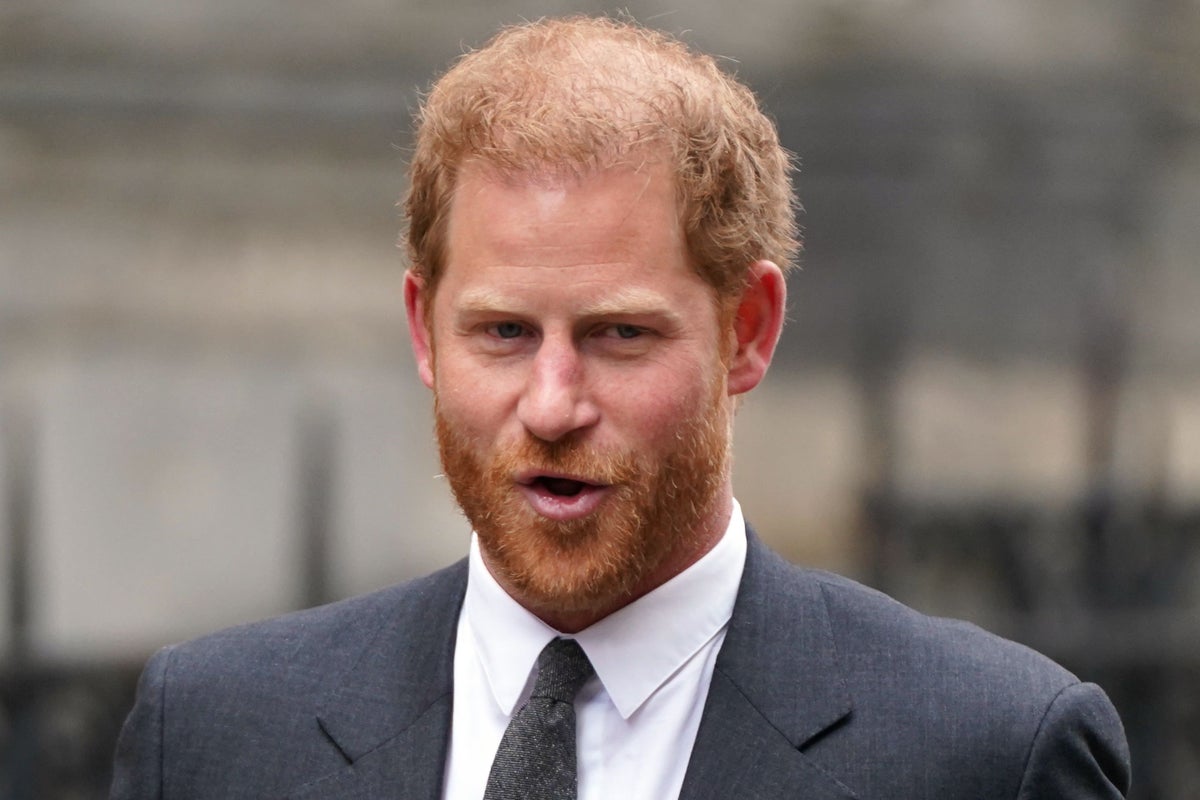
The Duke of Sussex’s visa application answers regarding past drug use should not be disclosed because it is “private personal information”, lawyers on behalf of the US Department of Homeland Security have said.
Harry’s reference to taking cocaine, marijuana and psychedelic mushrooms in his memoir Spare prompted a conservative Washington DC think tank to question why he was allowed into the US in 2020.
The Heritage Foundation brought the lawsuit against the Department for Homeland Security (DHS) after a Freedom of Information Act request was rejected – claiming it was of “immense public interest”.
If the court accepts Plaintiffs’ arguments, the Government would need to reveal confidential immigration information about Prince Harry, a result the court should not adopt— Lawyers on behalf of US Department of Homeland Security
In response to the think tank’s submissions that Harry’s US visa application should be released, lawyers on behalf of DHS said the Heritage Foundation “have not demonstrated possible government misconduct or any other public interest that would overcome Prince Harry’s privacy interest in these records”.
The DHS also said despite the duke being a “public official” in the UK, he is “not a public official in the United States”.
Their submissions to the court said DHS had “provided the maximum amount of information that it can provide regarding the records it possesses” without revealing Harry’s immigration status.
In his controversial memoir, the duke said cocaine “didn’t do anything for me”, adding: “Marijuana is different, that actually really did help me.”
The Heritage Foundation’s lawsuit argues that US law “generally renders such a person inadmissible for entry” to the country.
In the DHS’s response to the legal claim, they said: “Much like health, financial, or employment information, a person’s immigration information is private personal information.
“If the court accepts Plaintiffs’ arguments, the Government would need to reveal confidential immigration information about Prince Harry, a result the court should not adopt.”
The submissions made by lawyer John Bardo on behalf of DHS also said no “publicly available information, shows that Prince Harry was ever convicted for a drug-related offence.”
Mr Bardo added that any suggestion from the Heritage Foundation of wrongdoing on behalf of the US Government was “purely speculative”.
The response from DHS comes shortly after the duke was told he could proceed with his claim in the High Court in the UK against Associated Newspapers over alleged unlawful information gathering.
In the UK legal action, Harry is accusing the publisher of carrying out or commissioning unlawful activities such as hiring private investigators to place listening devices inside cars, “blagging” private records and accessing and recording private phone conversations.







